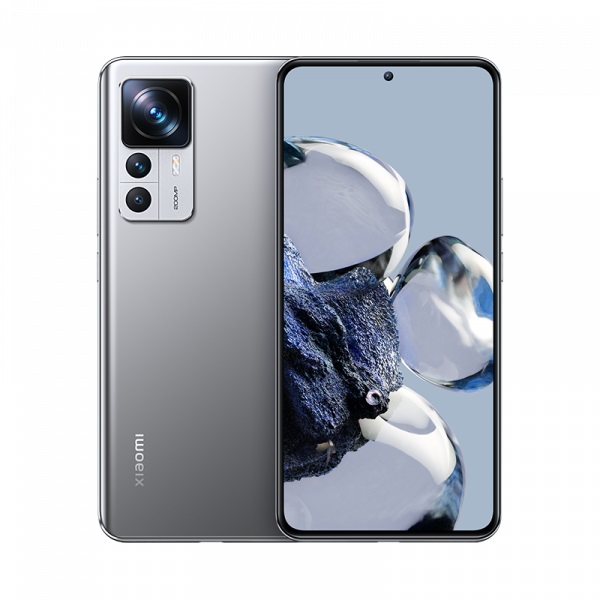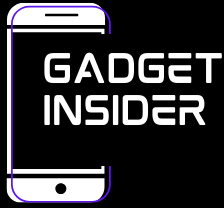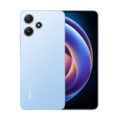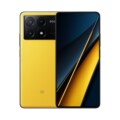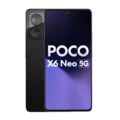- Home
- Xiaomi
- Xiaomi 12T Pro
Xiaomi 12T Pro
-
CPU
Octa-core
-
RAM
8GB /12GB
-
Storage
128GB/256GB
-
Primary Camera
200MP+8MP+2MP
-
OS
Android 12
-
Battery
5000mAh
Specs
General
|
Brand
|
Xiaomi |
|
Model
|
12T Pro |
|
Model Alias
|
22081212UG, 22081212G |
Launch
|
Announced
|
2022, October 06 |
|
Released
|
2022, October 06 |
|
Status
|
Available |
Design
|
Dimensions
|
163.1 x 75.9 x 8.6 mm |
|
Weight
|
205 g |
|
IP Rating
|
IP53, dust and splash resistant |
|
Colors
|
Black, Silver, Blue |
|
SIM
SIM (Subscriber Identity Module) is a small card that contains mobile network subscriber's account information. This allows the phone using the card to attach to a mobile network. The SIM card is most commonly associated with GSM and UMTS mobile networks. Moving a SIM card from one phone to another allows a subscriber to switch mobile phones without having to contact their mobile network carrier. SIM cards can also be used by a phone to store limited amounts of data, such as phone numbers and text messages. |
Nano-SIM, eSIM or Dual SIM |
|
Build
|
Glass, Alluminium alloy |
Display
|
Display Type
Display Technology => A number of display technologies and types used in mobile phones => TFT (Thin Film Transistor), IPS (In-Place Switching), OLED (Organic Light Emitting Diode), AMOLED (Active-Matrix Organic Light-Emitting Diode), Super AMOLED (an even advanced version of AMOLED), Resistive Touchscreen (Resistive touchscreens contain two layer of conductive material with a very small gap between them which acts as a resistance), Capacitive Touchsceen (Capacitive touchscreen technology consists of a layer of glass coated with a transparent conductor) |
AMOLED |
|
Size
|
6.67 inches |
|
Resolution
|
1220 x 2712 pixels |
|
Pixel Density
Pixel Density (PPI) is refers to the concentration of pixels on a particular display, measured in pixels per inch (ppi). Pixel density is calculated by dividing the diagonal pixel resolution of a display by its diagonal size, higher pixel density better display quality. |
446ppi |
|
Brightness
|
500nits |
|
Refresh Rate
|
120Hz |
Hardware
|
Operating System
OS => Every computer system run on a base software called Operating System (OS). Operating System controls all basic operations of the computer (such as smartphone, PDAs, tablet computers and other handheld devices). The Operating System allows the user to install and run third party applications (apps), apps are used to add new functionality to the device. |
Android 12 |
|
User Interface
UI or user interface of a device is the look and feel of the on-screen menu system. How it works, its color scheme, how it responds to button presses, all of these things are part of the user interface. |
Hyper OS |
|
Processors
Processors/Chipset is a group of integrated circuits designed to perform one or more dedicated functions, often with real-time computing constraints, Popular smartphones are equipped with more advanced embedded chipsets that can do many different tasks depending on their programming. |
Qualcomm SM8475 Snapdragon 8+ Gen 1 |
|
CPU
CPU (Central Processing Unit) mostly known as processors, CPU processes instructions in order to carry out certain functions that make your device operate properly. Processors are often described as the brain of computers, smartphones and tablets, Smartphones and tablets rely on processors to carry out their every task, Processors are an incredibly important factor in selecting any type of computing device, including your smartphone. |
Octa-core |
|
GPU
GPU (Graphics Processing Unit) is a single-chip processor designed to rapidly manipulate and alter memory to accelerate the creation of images in a frame buffer intended for output to a display, This includes things such as lighting effects, object transformations, and 3D motion. |
Adreno 730 |
Storage
|
RAM
RAM (Random Access Memory) is a type of computer memory that can be accessed randomly, any byte of memory can be accessed without touching the preceding bytes that allows information to be stored and accessed quickly from random locations. RAM is the most common type of memory found in computer systems, smartphones, tablets and other electronic devices. |
8GB/12GB |
|
Internal Storage
Internal Storage is a data storage space (flash memory) mostly used in smartphones, tablets and other electronic devices where operating system, apps, music, photos, videos, files and other user data Is stored. |
128GB /256GB |
|
Expandable Storage
|
No |
Rear Camera
|
Setup
|
Triple |
|
Resolution
|
200MP+8MP+2MP |
|
Camera Features
|
Dual-LED dual-tone flash, HDR, panorama |
|
Autofocus
|
Yes |
|
Flash
Flash Light => There is commonly two types of flash lights are used in camera mobile phones, LED Flash (LED flash offers lower power consumption with drive circuitry that takes up very little room, LEDs can be strobed faster than any other light source), Xenon Flash (xenon flash produces an extremely intense full-spectrum white light for a very short duration) |
|
|
Video
|
4K@30fps, 1080p@30/60/120fps, 720p@960fps |
Front Camera
|
Selfie Setup
|
Single |
|
Selfie Resolution
|
20MP |
Multimedia
|
Audio Jack (3.5mm)
|
|
|
Speaker
|
Yes , with stereo speaker |
Network & Connectivity
|
Technology
|
GSM / HSPA / LTE / 5G |
|
WLAN
|
Wi-Fi 802.11 b/g/n/ac/6 |
|
Wi-Fi Features
|
Dual-band, Wi-Fi Direct, Hotspot , Wi-Fi display |
|
Bluetooth
Bluetooth is a wireless communications technology for exchanging data between mobile phones, headsets, computers and other network devices over short distances without wires, Bluetooth technology was primarily designed to support simple wireless networking of personal consumer devices. |
5.2, A2DP, LE, aptX HD |
|
Positioning
|
GPS, GLONASS, BDS, GALILEO, QZSS, NavIC |
|
NFC
NFC (Near field communication) is a set of standards for smartphones and similar devices to establish peer-to-peer radio communications with each other by touching them together or bringing them into proximity, usually no more than a few inches. |
Yes |
|
FM Radio
|
No |
|
USB
|
Type-C 2.0 |
|
Sensors
Sensors are electronic components that detects and responds to some type of input from the physical environment. The specific input could be light, heat, motion, moisture, pressure and location, The output is generally a signal that is converted to use in computing systems, a location sensor, such as a GPS receiver is able to detect current location of your electronic device. |
Fingerprint, accelerometer, gyroscope, proximity, compass, color spectrum |
View More
View Less
Battery
|
Battery Capacity
Battery Capacity is a measure (typically in Amp-hr) of the charge stored by the battery, and is determined by the mass of active material contained in the battery. The battery capacity represents the maximum amount of energy that can be extracted from the battery under certain conditions. |
5000mAh |
|
Battery Type
Battery Type => Cell phones run on various kinds of batteries depending on the manufacturer, phone size or shape and features. There are basically four types of cell phone batteries => Lithium Polymer, Lithium Ion, Nickel Metal Hydride and Nickel Cadmium. |
Li-Polymer, non-removable |
|
Quick Charging
|
Yes |
Disclaimer Note
We always try our best to keep our website content and information updated and correct, the material and information contained on our website is for general information purposes only, You should not rely upon the material and information as a basis for making any business, legal or any other decisions. Some links may be affiliate links, meaning we earn a commission at no extra cost to you.
